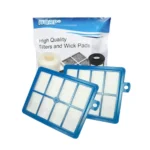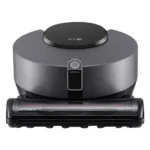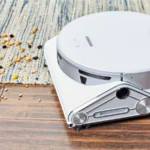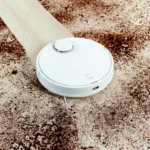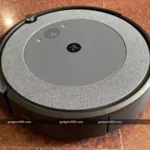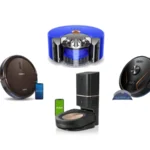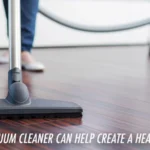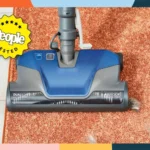Have you ever wondered how vacuum cleaners can suck up microscopic dust particles without spewing them back into the air? The answer lies in the HEPA filter – a crucial part of any high-quality vacuum cleaner. HEPA filters are renowned for their ability to trap even the tiniest particles, making them a must-have for anyone concerned about indoor air quality. But what exactly is a HEPA filter, and how does it work? In this article, we’ll explore the ins and outs of HEPA filters and why they are so important in smart vacuum cleaners.
What is a HEPA Filter?
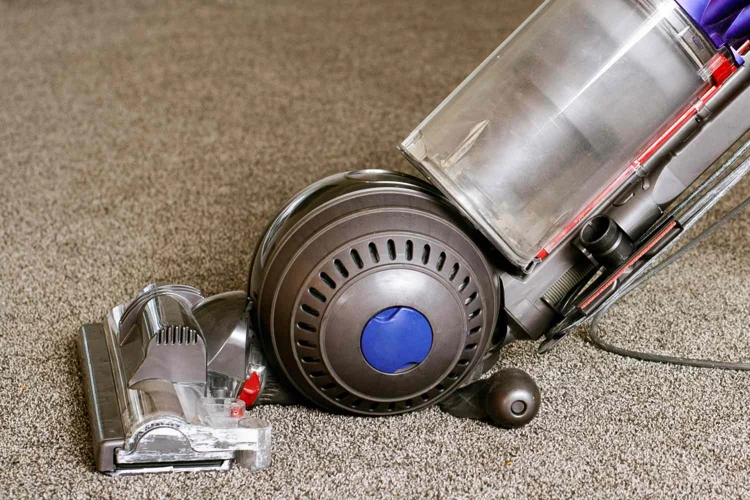
If you’re wondering how a vacuum cleaner can remove dust, debris and pollutants from the air, the answer is simple: a HEPA filter. With modern smart vacuums, having a HEPA filter has become a must-have feature. But what exactly is a HEPA filter, and why is it so important? HEPA, which stands for High Efficiency Particulate Air, is a type of filter capable of removing 99.97% of particles as small as 0.3 microns. In the following section, we’ll dive into how HEPA filters work and why they’re crucial to have in your smart vacuum cleaner. For more information on how HEPA filtration can help those with asthma and allergies, make sure to check out our article on HEPA filters and asthma.
What does HEPA stand for?
HEPA stands for “High Efficiency Particulate Air”. This acronym defines a standard of air filtration efficiency. To meet this standard, an air filter must remove at least 99.97 percent of all particles larger than 0.3 microns in size. Microns measure the size of particles found in the air. For context, a human hair has a diameter of about 50 to 150 microns.
HEPA filters use a dense network of fine mesh fibers to trap tiny particles that are invisible to the naked eye. These filters are made up of many interlaced layers of randomly arranged fibers. They can capture a wide variety of particles that are too small to be caught by other types of filters. This includes dust, pet dander, pollen, and even some bacteria.
HEPA filters were first developed in the 1940s for use in nuclear research facilities. They were designed to capture dangerous radioactive particles from the air. Today, they are commonly used in medical facilities, industrial settings, and in smart vacuum cleaners for reducing indoor air pollution.
The use of HEPA filters in smart vacuum cleaners has revolutionized the way we clean our homes. These filters are capable of capturing microscopic particles, making the air inside our homes cleaner and healthier to breathe. They are also effective in reducing allergens and asthma triggers, which is a significant benefit for those who suffer from respiratory issues.
HEPA filtration technology has been proven to be effective in reducing indoor air pollution. This is important because indoor air can often be more polluted than outdoor air. By trapping pollutants and preventing them from recirculating into the air, HEPA filters can significantly improve the overall indoor air quality of your home.
Knowing what HEPA stands for, is crucial in understanding the importance of these filters. Proper maintenance of your vacuum cleaner, including cleaning and replacing the HEPA filter regularly will ensure that it functions effectively and lasts for a long time.
How does a HEPA filter work?
A HEPA filter works by trapping tiny particles that are invisible to the naked eye. These filters are made up of randomly arranged fibers that are constructed to capture particles of extremely small sizes. Here’s how it works in three simple steps:
- Diffusion: The particles in the air enter the HEPA filter and collide with gas molecules. These collisions cause the particles to move from the air to the surface of the filter fibers. The smaller the particles are, the more they move around, increasing the chances of colliding with the filter fibers. This is known as the “Brownian motion.”
- Interception: Larger particles that do not move with the gas molecules follow the stream of air through the filter toward the fibers. When they come in contact with the fiber, they stick to the fiber walls. This process is known as interception. HEPA filters can capture particles as small as 0.3 microns in size, the size of small viruses and bacteria.
- Impaction: The largest particles in the air also get trapped by the HEPA filter. These particles are too big and heavy to remain suspended in the air, so they impact or directly collide with the filter fibers. This action causes them to stick to the fibers and become trapped in the filter media.
The HEPA filter works by using a combination of diffusion, interception, and impaction to capture tiny particles that other filters cannot. This makes it an essential component of vacuum cleaners, particularly for people who suffer from allergies or respiratory problems.
Why is a HEPA Filter Important in Smart Vacuum Cleaners?
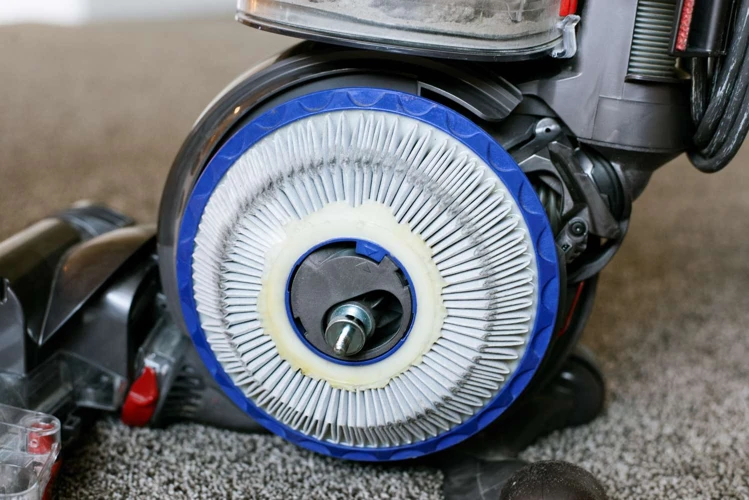
One of the key features that sets smart vacuum cleaners apart from traditional models is the use of HEPA filters. These filters play a crucial role in maintaining a clean and healthy indoor environment, making them an essential component of any modern cleaning device.
HEPA stands for High-Efficiency Particulate Air, and these filters are specially designed to capture tiny particles that would otherwise be missed by traditional vacuum cleaners. This includes pollen, pet dander, dust mites, and even bacteria and viruses.
By using a HEPA filter in a smart vacuum cleaner, you can rest assured that not only are you removing visible dirt and debris from your home, but you’re also capturing the unseen particles that can contribute to allergies and other health issues. This is especially important for those who suffer from asthma or other respiratory conditions.
But why is a HEPA filter specifically important in smart vacuum cleaners? The answer lies in their advanced technology. Smart vacuums have the ability to map and navigate your home, and they can even be programmed to clean on a schedule or respond to voice commands. By coupling this advanced technology with a HEPA filter, you can achieve a level of cleaning efficiency that would be impossible with a traditional vacuum.
One of the primary benefits of smart vacuum cleaners with HEPA filters is their ability to capture and contain allergens and other irritants. This is especially important for those who suffer from allergies or asthma, as it can greatly reduce symptoms and improve overall respiratory health.
Smart vacuum cleaners with HEPA filters can also help to keep your home smelling fresh and clean by capturing and containing odors. This is especially important for those who have pets or who cook frequently in their homes.
The importance of a HEPA filter cannot be overstated when it comes to smart vacuum cleaners. By investing in a smart vacuum with a HEPA filter, you can improve the cleanliness and health of your home, while enjoying the convenience of advanced cleaning technology.
What are the Benefits of a Smart Vacuum Cleaner with a HEPA Filter?
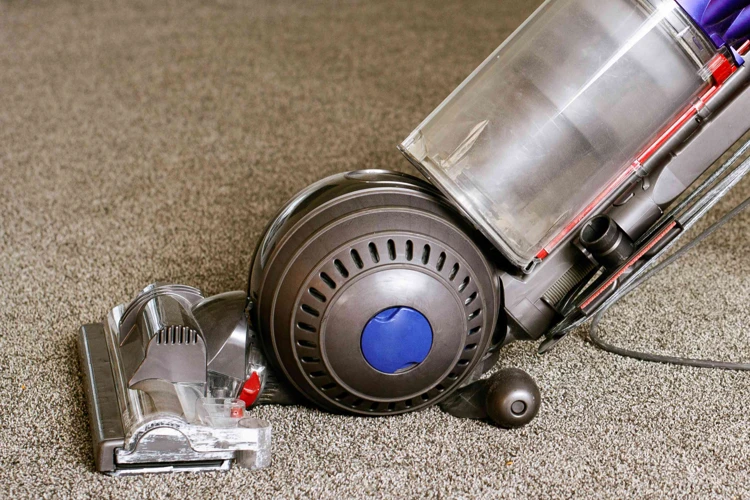
Are you tired of using a vacuum cleaner that leaves behind dust, allergens and other particles? Switching to a Smart Vacuum Cleaner with a HEPA filter may be the solution you need. Not only does it offer efficient cleaning, but it also improves the indoor air quality of your home, reduces the presence of allergens and asthma triggers, and provides a range of other benefits. Let’s delve deeper into why investing in a smart vacuum cleaner with a HEPA filter is a smart decision.
Efficient Cleaning
When it comes to cleaning our homes, efficiency is key. Nobody wants to spend hours vacuuming their floors, especially when the results are lackluster. This is where a smart vacuum cleaner with a HEPA filter comes in handy. Not only does it filter out tiny particles, but it also provides efficient cleaning in a variety of ways:
- Powerful Suction: Smart vacuum cleaners with HEPA filters are designed to have strong suction power. They are able to suck up dirt, debris, and pet hair from all types of flooring, including carpets, hardwood floors, and tile. The powerful suction allows the vacuum to pick up more dirt in less passes, saving you time and energy.
- Multiple Cleaning Modes: Many smart vacuum cleaners with HEPA filters offer multiple cleaning modes to maximize efficiency. These modes include spot cleaning, edge cleaning, and automatic cleaning. Spot cleaning allows the vacuum to focus on a specific area that needs attention, while edge cleaning targets corners and edges that often accumulate more dirt. Automatic cleaning mode allows the vacuum to navigate through your home on its own, covering all areas with minimal supervision.
- Intelligent Navigation: Some smart vacuum cleaners with HEPA filters come equipped with advanced sensors that allow them to navigate around obstacles with ease. They are able to detect furniture, stairs, and other obstacles in their path and adjust their cleaning accordingly. This means less time spent manually moving the vacuum around to avoid objects and more time spent doing other activities.
- Remote Control: Many smart vacuum cleaners with HEPA filters come with remote controls that allow you to start and stop the vacuum from a distance. This comes in handy when you need to quickly clean up a mess and don’t want to waste time searching for the vacuum.
A smart vacuum cleaner with a HEPA filter can provide efficient cleaning in a variety of ways thanks to its powerful suction, multiple cleaning modes, intelligent navigation, and remote control capabilities.
Improved Indoor Air Quality
One of the most significant benefits of having a vacuum cleaner with a HEPA filter is the improved indoor air quality it provides. A vacuum cleaner with a HEPA filter captures even the tiniest particles of dust and dirt, ensuring that they do not circulate back into the air. This means cleaner and healthier air inside your home or office.
But how exactly does a HEPA filter improve indoor air quality? Let’s take a look at the different types of particles that a vacuum cleaner with a HEPA filter can capture:
| Size of Particle | Type of Particle |
|---|---|
| 0.3 microns and larger | Pollen, mold spores, pet dander, and dust mites |
| 0.5 microns and larger | Fine dust, bacteria, and viruses |
| 0.01 microns and larger | Smoke, smog, and some types of asbestos and bacteria |
As you can see, a vacuum cleaner with a HEPA filter is capable of capturing particles that would otherwise be too small to see with the naked eye. This means that even the tiniest allergens, such as pollen and dust mites, are effectively removed from the air. This is especially beneficial for individuals with allergies or asthma, who may experience symptom relief due to the cleaner air.
In addition to capturing allergens and other particles, a vacuum cleaner with a HEPA filter can also help reduce odors in your home. By capturing particles that can contribute to stale, musty odors, a HEPA filter can leave your home smelling fresher and cleaner.
The improved indoor air quality provided by a vacuum cleaner with a HEPA filter is a game-changer for anyone looking to maintain a healthy and clean home or office environment.
Reduction in Allergens and Asthma Triggers
A HEPA filter in a smart vacuum cleaner is not just efficient in cleaning, but it also provides numerous health benefits. One of the most significant benefits of a vacuum cleaner with a HEPA filter is the reduction in allergens and asthma triggers.
HEPA filters can capture small particles, such as pet dander, pollen, and dust, which are the leading causes of allergies and asthma triggers. This filter traps these harmful particles and prevents them from recirculating into the air, resulting in improved indoor air quality. With clean and fresh air circulating in your home, you are less likely to experience allergy and asthma symptoms.
Allergy sufferers and those with asthma are more susceptible to health problems due to poor air quality. Traditional vacuum cleaners may stir up these harmful particles instead of trapping them, making respiratory issues worse. The use of HEPA filters, however, can provide great relief to those who suffer from these conditions.
In addition to preventing allergy and asthma symptoms, a HEPA filter in a smart vacuum cleaner can also reduce the risk of respiratory infections. Airborne bacteria, viruses, and other pathogens can be captured by the filter, preventing them from circulating and causing illness in your home.
So, by investing in a smart vacuum cleaner with a HEPA filter, you are not only making cleaning easier, but also improving the health and well-being of your family by reducing allergens and asthma triggers, and reducing the risk of respiratory infections.
Types of Vacuum Cleaners with HEPA Filters
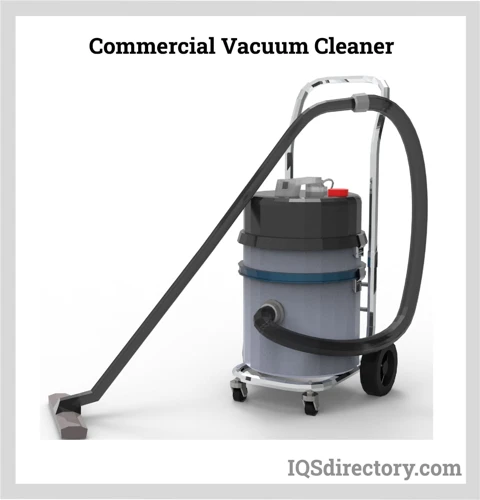
When it comes to choosing a vacuum cleaner with a HEPA filter, there are a few different types to consider. One option is an upright vacuum cleaner, which is typically the most popular type of vacuum. Upright vacuum cleaners can have a single HEPA filter or even multiple filters. They are also usually equipped with rotating brushes that are great for lifting dirt and debris from carpets.
Another option is a canister vacuum cleaner, which is great for cleaning hard floors and area rugs. Canister vacuums have a long hose and a wand that can be maneuvered into tight spaces, making them a great option for more detailed cleaning. Many canister vacuum cleaners now feature HEPA filters, making them even more effective at removing dust and allergens from your home.
Robot vacuums with HEPA filters are also becoming increasingly popular. These vacuums are great for busy individuals who want to keep their homes clean, but don’t have the time or energy to vacuum regularly. Robot vacuums are designed to navigate around furniture and other obstacles, making them great for cleaning under beds, sofas, and other hard-to-reach areas.
Handheld vacuums are another option with HEPA filters. These vacuums are great for quick cleanups and spot-cleaning. They are lightweight and easy to maneuver, making them perfect for cleaning stairs and upholstery.
Finally, stick vacuums with HEPA filters are a popular choice for those looking for the convenience of a handheld vacuum with the power of an upright vacuum. These vacuums are lightweight and easy to store, making them a great option for smaller apartments or homes with limited storage space.
It’s important to consider your specific cleaning needs when choosing a vacuum cleaner with a HEPA filter. Think about the types of surfaces you’ll be cleaning, the size of your home, and any allergies or asthma triggers you may have. By choosing a vacuum cleaner that meets your specific needs, you can ensure that your home stays clean and healthy.
How to Choose the Right Smart Vacuum Cleaner with a HEPA Filter
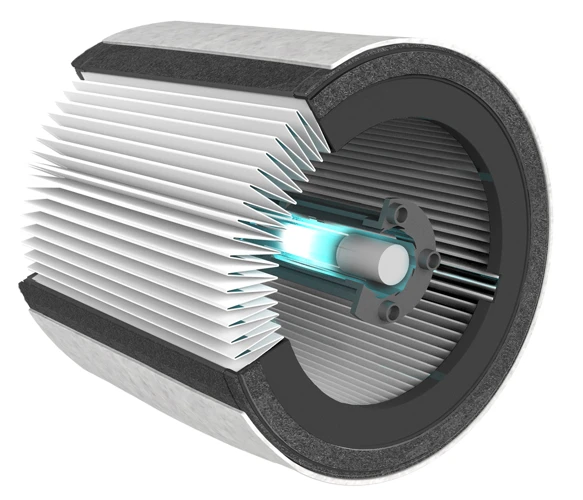
When it comes to choosing a smart vacuum cleaner with a HEPA filter, the options can be overwhelming. With so many features and models available, it can be difficult to know where to start. However, selecting the right vacuum cleaner is crucial if you want to ensure efficient cleaning and improved air quality in your home. Here are some tips and considerations to help you make an informed decision.
Budget and Price
When choosing a smart vacuum cleaner with a HEPA filter, one of the most important factors to consider is your budget and the price of the vacuum cleaner. While there are many options available in the market, finding the right one that meets your needs and falls in your budget can be a bit tricky.
Price Range
The price of a smart vacuum cleaner with a HEPA filter can vary greatly based on various factors such as brand, type and quality. Typically, the price of these vacuums ranges from $100 to $1000. Here is an overview of the different price ranges and what you can expect from a vacuum cleaner in each range:
| Price Range | Features | Examples |
|---|---|---|
| Less than $200 | Basic vacuum cleaner with HEPA filter | Eureka NEU182A PowerSpeed Lightweight Bagless Upright Vacuum Cleaner |
| $200-$500 | More advanced vacuum cleaner with stronger suction power, larger dirt capacity, and additional features such as Wi-Fi connectivity and voice control | Shark IQ Robot Self-Empty XL RV1001AE, Roborock E4 Robot Vacuum Cleaner |
| $500-$1000 | Top-of-the-line vacuum cleaner with advanced features such as laser mapping technology, automatic room recognition, and advanced filtration system | iRobot Roomba s9+ (9550), Dyson Cyclone V10 Absolute+ |
Cost of Maintenance
When selecting a vacuum cleaner with a HEPA filter, it’s also essential to consider the cost of maintenance. It’s important to know that regular cleaning and replacing of the filter will be required for the vacuum to retain its effectiveness. The cost of maintenance can vary from model to model, so it’s crucial to do a bit of research before making a purchase. Some vacuums require more frequent filter replacements and can be more expensive to maintain, while others have washable filters that can be reused multiple times, saving you money in the long run.
When looking for a smart vacuum cleaner with a HEPA filter, it’s best to decide on a budget that meets your needs and then look for models that fall within that budget. While a high-end vacuum cleaner may have more advanced features, a budget-friendly option may still offer you the same basic benefits of having a HEPA filter. Remember to also consider the cost of maintenance when making your decision.
Type of Filtration System
When choosing a smart vacuum cleaner with a HEPA filter, it is important to consider the type of filtration system. There are a few different types of filters that can be used in vacuum cleaners, each with their own pros and cons. Here are a few different types of filtration systems to consider:
- True HEPA Filter: The gold standard for air filtration, a true HEPA filter removes 99.97% of particles that are as small as 0.3 microns in size. This type of filter is the most effective at removing allergens and other pollutants from the air, making it a great option for those who suffer from allergies or asthma. It is important to note that not all HEPA filters are created equal, and some vacuums may claim to have a “HEPA-like” filter, which may not be as effective as a true HEPA filter.
- HEPA-Type Filter: This type of filter is similar to a true HEPA filter, but it is not as effective. While it can still capture a large percentage of particles, it typically only removes around 95% of particles that are 0.3 microns or larger. HEPA-type filters are often found in lower-end vacuum cleaners, and may not be the best choice for those with allergies or asthma.
- Cyclonic Filtration: This type of filtration system uses centrifugal force to separate dust and other particles from the air. While it is effective at removing larger particles like pet hair, it is not as effective at removing smaller particles like pollen or dust mites. This type of filtration system is often found in bagless vacuum cleaners, and can be a good option for those who don’t want to deal with replacing bags.
- Activated Carbon Filter: An activated carbon filter is designed to remove odors from the air. This type of filter is often used in conjunction with a HEPA filter to provide additional odor control. While it is not as effective at removing particles as a true HEPA filter, it can be a good option for pet owners or those with other sources of household odors.
- Pre-Filter: Some vacuums may have a pre-filter that captures larger particles before they reach the HEPA filter. This can help to extend the life of the HEPA filter, as it won’t become clogged with larger particles as quickly. A pre-filter can be a good option for those with pets or who live in dusty environments.
It’s important to consider your specific needs when choosing a vacuum cleaner with a HEPA filter. If you have allergies or asthma, a true HEPA filter is likely your best bet. However, if you are simply looking for a vacuum that can control odors or clean up pet hair, a different type of filter may be more appropriate. Be sure to do your research and read reviews before making a purchase.
Cleaning Needs and Living Situation
When choosing a smart vacuum cleaner with a HEPA filter, it’s important to consider your cleaning needs and living situation. Here are some factors to keep in mind:
- Flooring type: If you have a lot of carpeted areas, you may want to consider a vacuum cleaner with a powerful suction and brushroll. For hardwood or tile floors, a vacuum with strong suction and a wide cleaning head may be more efficient.
- Pet owners: If you have furry pets at home, you may want to look for vacuum cleaners with specialized pet hair tools, such as a mini motorized brush or a pet hair attachment. These tools can help pick up pet hair and dander more effectively.
- Home size: The size of your home can also influence your vacuum cleaner choice. If you live in a small apartment, you may be able to get away with a smaller vacuum cleaner with a smaller dustbin capacity. However, for larger homes or those with multiple stories, you may want to consider a bigger vacuum cleaner with a larger dustbin capacity and longer battery life.
- Allergies: If anyone in your household suffers from allergies, you’ll want to choose a vacuum cleaner that does the best job at trapping allergens. A vacuum cleaner with a HEPA filter is one of the best choices for allergy sufferers as HEPA filters can trap particles as small as 0.3 microns.
- Noise level: Some vacuum cleaners can be noisy, which can be an issue in shared living spaces or for households with babies or pets that are sensitive to loud noises. Look for vacuum cleaners with a low decibel rating if noise is a concern for you.
By taking these factors into consideration, you can choose the best smart vacuum cleaner with a HEPA filter for your unique needs and living situation.
Extra Features and Accessories
When choosing a smart vacuum cleaner with a HEPA filter, there are several extra features and accessories to consider that can enhance the cleaning experience.
1. Multiple Cleaning Modes: Look for a vacuum cleaner that offers multiple cleaning modes such as auto, edge, and spot cleaning. This will allow you to customize the cleaning according to your unique needs and ensure through cleaning even in difficult corners and tight spaces.
2. Wi-Fi and Voice Control: Smart vacuums with Wi-Fi connectivity and voice control options allows you to start and stop the vacuum, monitor its progress, and even schedule cleaning sessions from your smartphone or through voice commands from your smart home device.
3. Battery Life: Battery life is essential, especially if you have a larger home or have pets that shed frequently. Look for a vacuum cleaner with a powerful and long-lasting battery life so that it can clean for extended periods without needing frequent charging.
4. Sensor Technology: Advanced sensor technology can help to detect obstacles and prevent accidental damage to furniture or other objects.
5. Additional Attachments: Additional attachments can provide flexibility in cleaning different surfaces and areas. Look for brush attachments for cleaning pet hair and crevice tools for tight spaces.
6. Dustbins: Some smart vacuum cleaners come with larger dustbins which can save time spent emptying them.
When it comes to choosing a smart vacuum cleaner with a HEPA filter, take into account these extra features and accessories that can make a difference in your cleaning experience.
How to Clean and Replace a HEPA Filter in Your Vacuum Cleaner
Keeping your vacuum cleaner’s HEPA filter clean and functional is crucial to maintaining the efficiency and indoor air quality benefits of a smart vacuum cleaner. Over time, HEPA filters can become clogged with dirt, dust, and other debris, which can hinder their performance and be harmful to your health. In this section, we’ll show you how to clean and replace a HEPA filter in your vacuum cleaner, so you can keep your home clean and healthy. Follow these simple steps to keep your smart vacuum cleaner running like new!
When to Clean and Replace Your HEPA Filter
It’s important to know when to clean and replace your HEPA filter in order to maintain the efficiency and performance of your vacuum cleaner. Here are some signs that indicate it’s time to clean or replace your HEPA filter:
- Reduced suction: If you notice that your vacuum cleaner isn’t picking up dirt and debris as efficiently as it used to, the HEPA filter may be clogged and in need of cleaning or replacement.
- Dusty exhaust: If you see dust or particles coming out of the exhaust of the vacuum cleaner, it’s a clear indication that the HEPA filter isn’t working effectively or is damaged.
- Visible debris on the filter: If you can see dirt and debris on the surface of the HEPA filter, it’s time to clean it or replace it with a new one.
- Unpleasant odors: If you notice a musty or unpleasant odor coming from your vacuum cleaner, it could be an indication of a dirty or damaged HEPA filter.
By regular checking and cleaning or replacing your HEPA filter, you can ensure that your vacuum cleaner is working effectively, improving indoor air quality and reducing the amount of allergens and asthma triggers in your home.
Steps to Clean and Replace a HEPA Filter
Cleaning and maintaining your HEPA filter is an important part of ensuring optimal performance of your vacuum cleaner. Here are the steps you need to follow to clean and replace your HEPA filter.
| Step | Description |
|---|---|
| Step 1: | Check the user manual: |
| Before you begin cleaning or replacing the filter, be sure to refer to the user manual provided by the manufacturer. This will give you all the necessary information and instructions for your specific vacuum cleaner. | |
| Step 2: | Turn off the vacuum cleaner: |
| Before cleaning or replacing the filter, always ensure that the vacuum cleaner is turned off and unplugged from the power outlet. Safety should always be a priority. | |
| Step 3: | Remove the filter: |
| Remove the filter from the vacuum cleaner according to the instructions in your user manual. Some filters may require you to release a latch or button before you can remove them. | |
| Step 4: | Shake off excess debris: |
| Take the filter outside and gently tap it to dislodge any excess debris. You can also use a soft brush to remove any loose dust or dirt on the surface of the filter. | |
| Step 5: | Wash the filter: |
| Fill a sink or bucket with warm water and mild soap. Submerge the filter in the soapy water and gently agitate it to remove any trapped dirt or debris. Rinse the filter thoroughly with clean water and let it air dry completely before reinstalling. | |
| Step 6: | Replace or reinstall the filter: |
| Once the filter is completely dry, reinstall it back into the vacuum cleaner according to the instructions provided in your user manual. Some filters may require you to replace them with a new one, so be sure to check the user manual for this information. |
By following these steps, you can ensure the longevity and effectiveness of your HEPA filter, and in turn, improve the performance of your smart vacuum cleaner.
Conclusion
In conclusion, a HEPA filter is a crucial element in modern smart vacuum cleaners that ensures efficient cleaning and improved indoor air quality. With a HEPA filter, vacuum cleaners can trap tiny particles such as dust, pet dander, mold spores, and pollen, which helps reduce allergens and asthma triggers. This not only leaves your home feeling cleaner and fresh but also promotes healthier living conditions for you and your loved ones.
When selecting a smart vacuum cleaner with a HEPA filter, it’s important to consider factors such as your budget, the type of filtration system, your cleaning needs, and any extra features and accessories that may be useful.
Additionally, it’s essential to know when to clean and replace your HEPA filter, as this can affect the overall performance and lifespan of your vacuum cleaner. Regular maintenance and cleaning of your vacuum cleaner can ensure that it continues to function efficiently and effectively for longer periods.
Overall, investing in a smart vacuum cleaner with a HEPA filter is a wise decision that can make your cleaning routine easier, more effective, and healthier. By prioritizing indoor air quality, you can enjoy a clean and fresh living space with minimal exposure to harmful allergens and pollutants. So, don’t hesitate to take the step towards a cleaner and healthier home with a smart vacuum cleaner that incorporates a HEPA filter.
Frequently Asked Questions
1. How frequently should I change my HEPA filter in my vacuum cleaner?
It is recommended to change your HEPA filter every six months to maintain optimum efficiency.
2. Is a HEPA filter worth the extra cost when purchasing a vacuum cleaner?
Yes, a HEPA filter is definitely worth the extra cost as it can greatly improve the indoor air quality and reduce allergens and asthma triggers.
3. Should I go for a bagged or bagless vacuum cleaner if I want a HEPA filter?
Both bagged and bagless vacuum cleaners can have a HEPA filter, so it depends on your personal preference and cleaning needs.
4. Can a HEPA filter remove pet hair from my carpet?
Yes, a HEPA filter can remove pet hair from your carpet, but it is more effective when combined with a powerful vacuum cleaner suction.
5. Can a HEPA filter remove mold spores from the air?
Yes, a HEPA filter can effectively remove mold spores from the air, but it is important to address the root cause of the mold growth as well.
6. Can a HEPA filter remove cigarette smoke from the air?
Yes, a HEPA filter can effectively remove cigarette smoke from the air, but it may take longer than other types of pollutants.
7. Can I wash my HEPA filter or do I need to replace it?
It depends on the specific HEPA filter, but many can be washed and reused. Always check the manufacturer’s instructions to be sure.
8. Can a HEPA filter help with dust allergies?
Yes, a HEPA filter can greatly reduce dust allergens in the air, making it easier for those with dust allergies to breathe.
9. Can a HEPA filter help with pollen allergies?
Yes, a HEPA filter can effectively remove pollen from the air, making it easier for those with pollen allergies to breathe.
10. Can a HEPA filter make my vacuum cleaner louder?
No, a HEPA filter should not affect the noise level of your vacuum cleaner as long as it is properly installed and maintained.

